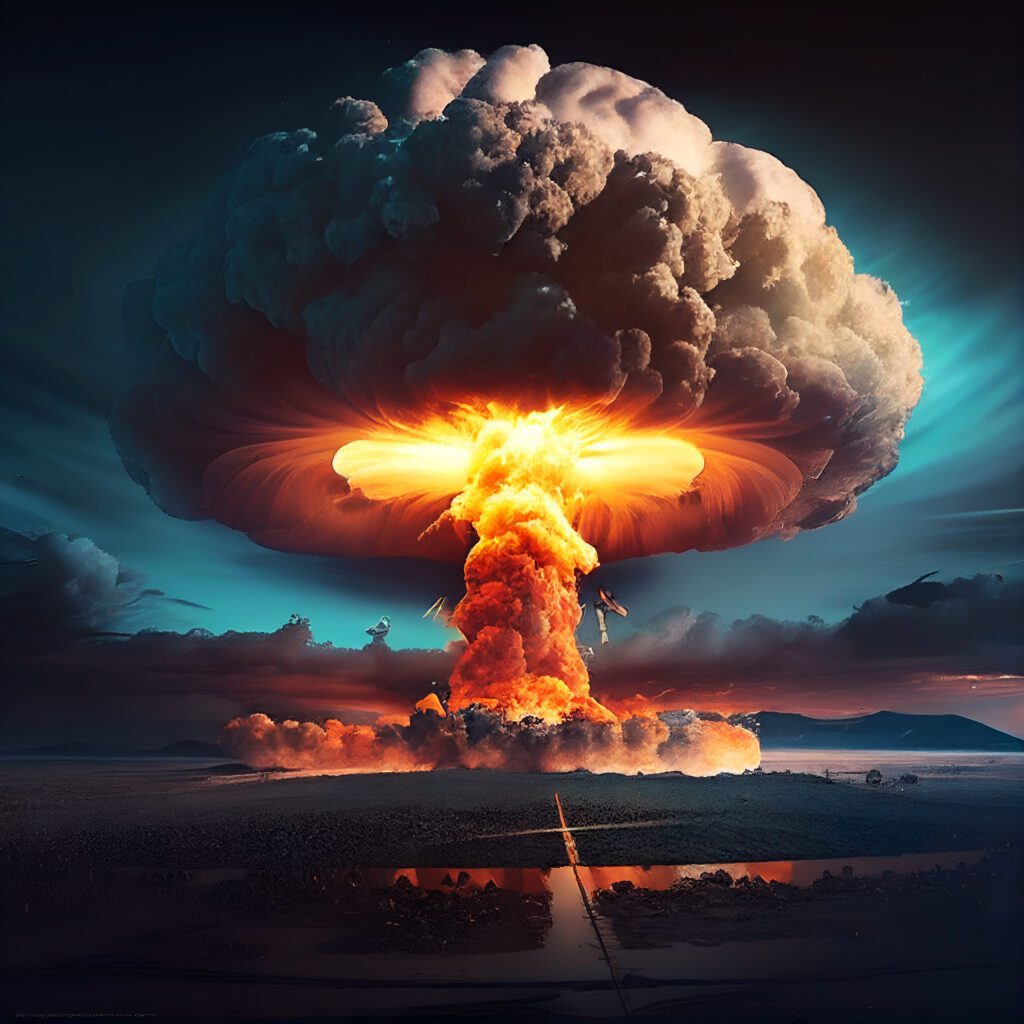צרו איתנו קשר!
נשק גרעיני
מאופנהיימר ועד מאסק
Nuclear Weapons
From Oppenheimer to Musk
About The Course
על הקורס
מאופנהיימר ועד מאסק: ההיסטוריה של הנשק הגרעיני
קורס זה יספק לסטודנטים הבנה מעמיקה של התפתחות הנשק הגרעיני, החל מראשיתו במחצית המאה ה-20 ועד למשמעויותיו הנוכחיות והעתידיות במאה ה-21. ללומדים יוצגו ההיבטים הטכנולוגיים והמדיניים של התחום, תוך חשיפה למושגי היסוד הפיזיקליים של הטכנולוגיה הגרעינית והבנת ההשלכות המרחיקות לכת של נשק זה.
הקורס יפתח בסקירה של עקרונות בסיסיים, כגון מרכיבי פצצה גרעינית וכיצד בונים אותה, הבדלים בין כורים גרעיניים למתקני העשרה, וייצור חומרים רדיואקטיביים כמו מסה קריטית ועוגה צהובה (רמז, לא מומלץ לאכול אותה). מכאן, הסטודנטים יוזמנו לפנים פרויקט מנהטן ההיסטורי ולהכיר דמויות מפתח כרוברט אופנהיימר (כן ההוא מהסרט). בתהליך שיבהיר את הייחודיות וההשלכות הנרחבות של נשק גרעיני לעומת נשק קונבנציונלי.
יושם דגש מיוחד על אפקטים הרסניים של פיצוץ גרעיני, ההבדל בין נשק גרעיני טקטי לאסטרטגי ובין יכולת פיתוח גרעינית צבאית לאזרחית. הקורס ימשיך בהצגת מדיניות הגרעין ואסטרטגיות מרכזיות כמו הרתעה גרעינית ודוקטרינת MAD – מכת גומלין, יחד עם המונחים הנלווים כמכה ראשונה/ שנייה והבחנה בין מתקפה גרעינית נגד כוח ונגד ערך.
התקופה תיסקר גם מנקודת המבט של תנועת המחאה נגד נשק גרעיני, עם סקירה של מטרותיה, פעילותה וההישגים שלה, במטרה להבין גורמים שמנעו התפשטות נרחבת של יכולות גרעיניות לרבות מדינות. הסכמי אי-ההתפשטות הגרעינית המרכזיים יידונו כמכשיר להגבלת הפצת טכנולוגיה ונשק כאלה.
נדון בהסכמי אי התחמשות שנחתמו על ידי רוב המדינות בזירה הבינלאומית. נבין מדוע הם חשובים, איזה הגבלות הם מציבים למדינות במה שנוגע לשימוש, הפצה, וניסויים בטכנולוגיה גרעינית.
לקראת סיום, הסטודנטים יעסקו בשאלות מעשיות העולות כיום: האם נשק גרעיני נותר רלוונטי בעידן הנוכחי, והאם איום זה עודנו משמעותי נוכח טכנולוגיות חדשות כסייבר ובינה מלאכותית? הקורס יקנה הבנה מקיפה של מורשתו המדינית והמדעית של הכלי ההרסני הזה לצד השלכות עתידיות אפשריות.
* הקורס יותאם לרמת כל שכבת גיל.
From Oppenheimer to Musk: The History of Nuclear Weapons
This course will provide students with a comprehensive understanding of the development of nuclear weapons, from their inception in the mid-20th century to their current and future implications in the 21st century. Students will be introduced to both the technological and political aspects of the field, exposing them to the fundamental physical concepts of nuclear technology and understanding the far-reaching consequences of these weapons.
The course will begin with an overview of basic principles, such as the components of a nuclear bomb and how it is constructed, differences between nuclear reactors and enrichment facilities, and the production of radioactive materials like critical mass and yellowcake (hint: not recommended for consumption). From here, students will be invited into the historic Manhattan Project and introduced to key figures such as Robert Oppenheimer (yes, the one from the movie). This process will elucidate the uniqueness and extensive implications of nuclear weapons compared to conventional armaments.
Special emphasis will be placed on the destructive effects of a nuclear explosion, the difference between tactical and strategic nuclear weapons, and the distinction between military and civilian nuclear development capabilities. The course will continue by presenting nuclear policies and central strategies such as nuclear deterrence and the MAD (Mutually Assured Destruction) doctrine, along with related terms like first/second strike and the distinction between counterforce and countervalue nuclear attacks.
The period will also be examined from the perspective of the anti-nuclear movement, with an overview of its objectives, activities, and achievements, aiming to understand factors that prevented the widespread proliferation of nuclear capabilities to many countries. Key nuclear non-proliferation agreements will be discussed as instruments for limiting the spread of such technology and weapons.
We will discuss disarmament agreements signed by most countries in the international arena. We will understand why they are important, what restrictions they impose on countries regarding the use, proliferation, and testing of nuclear technology.
Towards the conclusion, students will engage with practical questions arising today: Does nuclear weaponry remain relevant in the current era, and does this threat still hold significance in the face of new technologies such as cyber and artificial intelligence? The course will provide a comprehensive understanding of the political and scientific legacy of this destructive tool alongside possible future implications.
* The course material will be tailored to the age of the learners.







